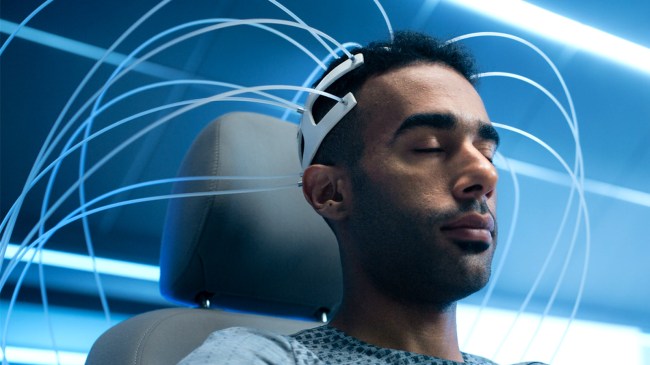iStockphoto

Audio By Carbonatix
A recent survey of neuroscientists revealed that almost half of them think that some day we will be able to upload our brains to a computer. They clarify that they aren’t talking about the person’s consciousness like in cyberpunk movies and books, but rather recording someone’s memories from their brain to a hard drive to be viewed after the person is dead.
The results of the survey of 312 neuroscientists, published in the journal PLOS One, revealed “the median probability estimate that any long-term memories could potentially be extracted from a static snapshot of brain structure was around 40%, which was also the estimate for whether a successful whole brain emulation could theoretically be created from the structure of a preserved brain.”
40 percent of the neuroscientists also predicted uploading and digitizing a person’s brain, including their consciousness, will be possible. When predicting the future feasibility of whole brain emulation, they gave a median time frame for this to happen in mice occurring some time around 2065, and with humans around the year 2125.
“While 70.5% of participants agreed that long-term memories are primarily maintained by neuronal connectivity patterns and synaptic strengths, there was no clear consensus on which specific neurophysiological features or scales are critical for memory storage,” the scientists wrote.
They also learned from the results of their survey “that while most neuroscientists believe memories are stored in structural features of the brain, fundamental questions about the precise physical basis of memory storage remain unresolved.”
That basically means they don’t know how to extract these memories from a human brain yet. However, study lead author Dr. Ariel Zeleznikow-Johnston did tell IFL Science, “On the one hand, I do think there’s a huge amount of neuroscientific evidence to suggest that memories are stored in structural aspects of neurophysiology, and thus I thought many of my colleagues would agree that if you could preserve brain structure, you could probably preserve memory.
“But on the other hand, it’s a pretty weird question with some weird implications, and I thought a fair number of neuroscientists would just say it was too weird to work. I was pleasantly surprised by how seriously most respondents seem to have taken the survey, and how many of them take the implications of neuroscientific research up to this point seriously.”
So, he’s saying there’s a chance.
Content shared from brobible.com.

